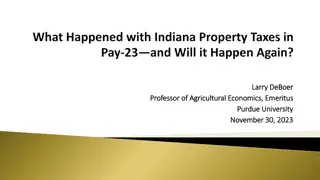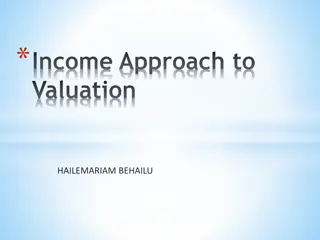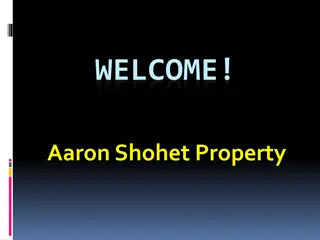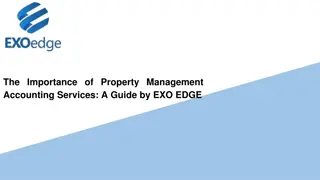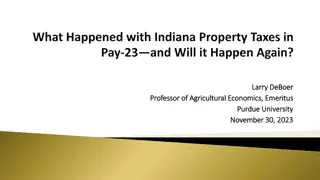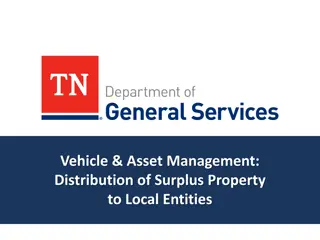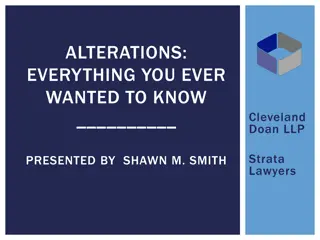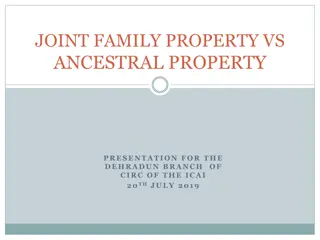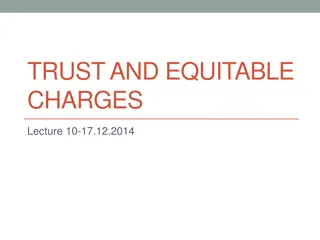PROPERTY ISSUES IN THE PCUSA
Each congregation in the PCUSA is required to form and maintain a corporation for property management. All property is held in trust for the benefit of the Presbyterian Church (U.S.A.). In case of congregation dissolution, property disposition is directed by the presbytery. Strict regulations govern property transactions to preserve the integrity of the church.
Download Presentation

Please find below an Image/Link to download the presentation.
The content on the website is provided AS IS for your information and personal use only. It may not be sold, licensed, or shared on other websites without obtaining consent from the author.If you encounter any issues during the download, it is possible that the publisher has removed the file from their server.
You are allowed to download the files provided on this website for personal or commercial use, subject to the condition that they are used lawfully. All files are the property of their respective owners.
The content on the website is provided AS IS for your information and personal use only. It may not be sold, licensed, or shared on other websites without obtaining consent from the author.
E N D
Presentation Transcript
PROPERTY ISSUES IN THE PCUSA G-4.0000
PROPERTY: INCORPORATION Where permitted by civil law, each congregation shall cause a corporation to be formed and maintained The corporation so formed shall have the following powers: to receive, hold, encumber, manage, and transfer property, real or personal, for the congregation, provided that in buying, selling, and mortgaging real property, the trustees shall act only after the approval of the congregation, granted in a duly constituted meeting. The ruling elders on the session of a congregation, who are eligible under the civil law, shall be the trustees of the corporation, unless the corporation shall determine another method for electing its trustees.
PROPERTY: HELD IN TRUST All property held by or for a congregation, a presbytery, a synod, the General Assembly, or the Presbyterian Church (U.S.A.), whether legal title is lodged in a corporation, a trustee or trustees, or an unincorporated association, and whether the property is used in programs of a congregation or of a higher council or retained for the production of income, is held in trust nevertheless for the use and benefit of the Presbyterian Church (U.S.A.).
PROPERTY: DISSOLUTION OF A CONGREGATION Whenever a congregation is formally dissolved by the presbytery, or has become extinct by reason of the dispersal of its members, the abandonment of its work, or other cause, such property as it may have shall be held, used, and applied for such uses, purposes, and trusts as the presbytery may direct, limit, and appoint, or such property may be sold or disposed of as the presbytery may direct, in conformity with the Constitution of the Presbyterian Church (U.S.A.).
PROPERTY: SELL, ENCUMBER, LEASE A congregation shall not sell, mortgage, or otherwise encumber any of its real property and it shall not acquire real property subject to an encumbrance or condition without the written permission of the presbytery transmitted through the session of the congregation. A congregation shall not lease its real property used for purposes of worship, or lease for more than five years any of its other real property, without the written permission of the presbytery transmitted through the session of the congregation.
PROPERTY: IN EVENT OF SCHISM The relationship to the Presbyterian Church (U.S.A.) of a congregation can be severed only by constitutional action on the part of the presbytery (G-3.0303b). If there is a schism within the membership of a congregation and the presbytery is unable to effect a reconciliation or a division into separate congregations within the Presbyterian Church (U.S.A.), the presbytery shall determine if one of the factions is entitled to the property because it is identified by the presbytery as the true church within the Presbyterian Church (U.S.A.). This determination does not depend upon which faction received the majority vote within the congregation at the time of the schism.
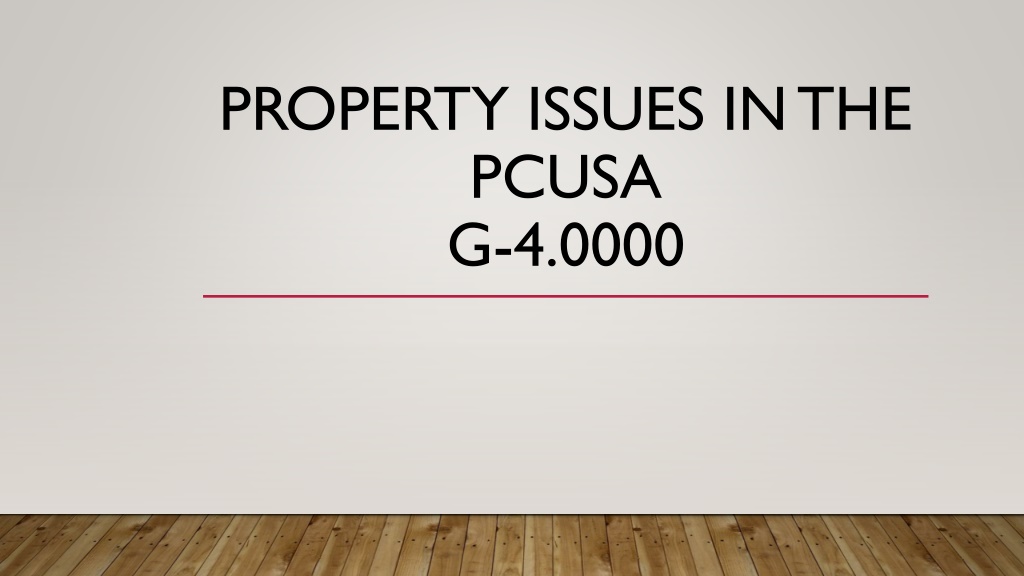








![Property Settlements in Family Law: Case Study of Stamatou & Stamatou [2022] FedCFamC1F 241](/thumb/63303/property-settlements-in-family-law-case-study-of-stamatou-stamatou-2022-fedcfamc1f-241.jpg)
